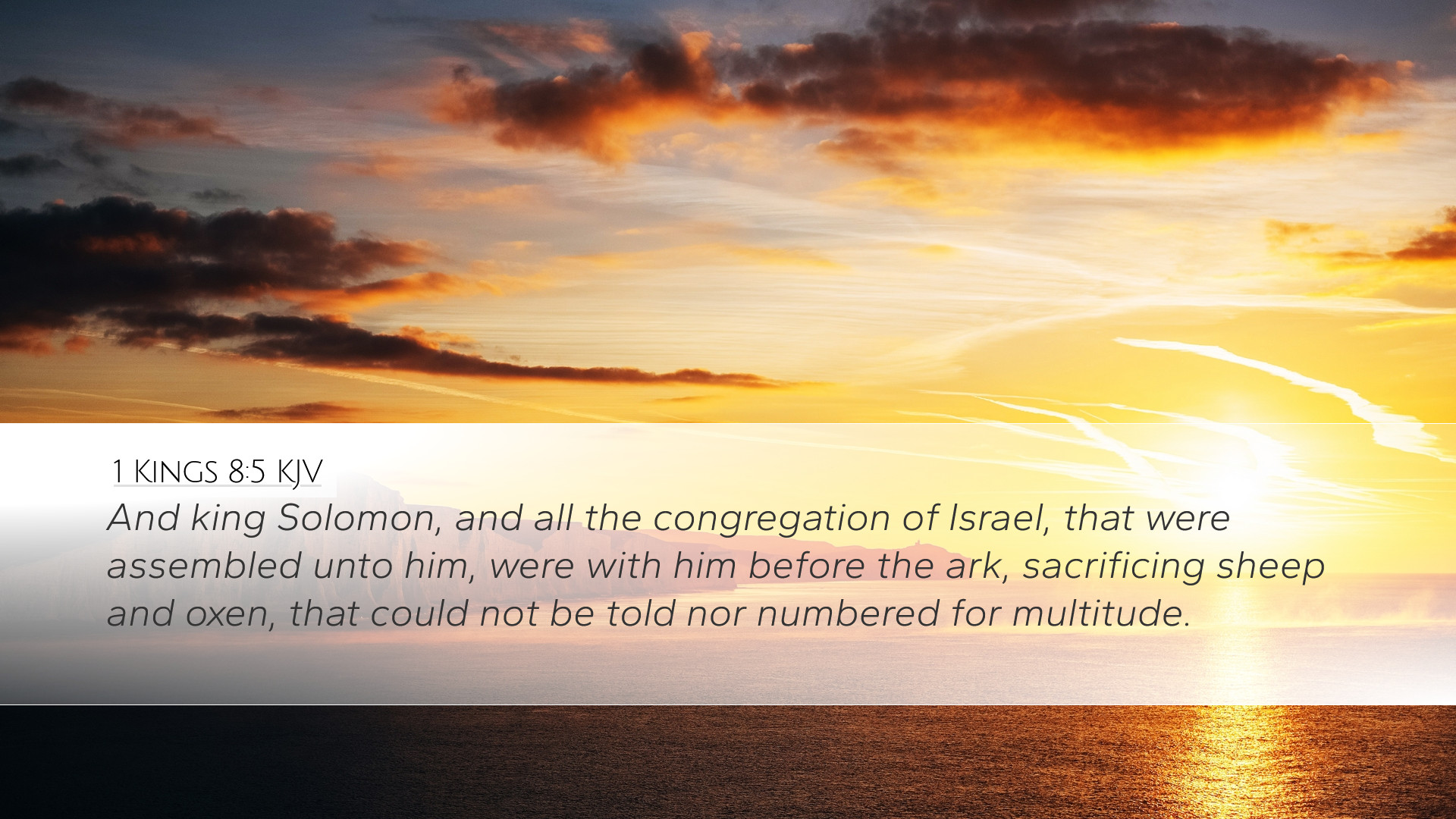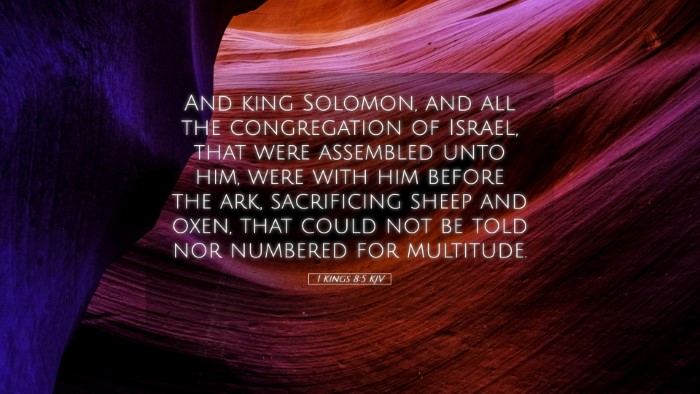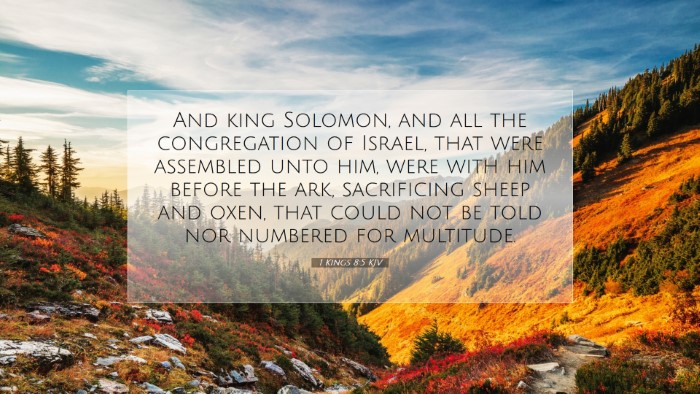Commentary on 1 Kings 8:5
Verse: 1 Kings 8:5 - "And King Solomon and all the congregation of Israel, that were assembled unto him, were with him before the ark, sacrificing sheep and oxen, that could not be told nor numbered for multitude."
Contextual Overview
The passage comes at a pivotal moment in Israel's history—the dedication of the temple built by Solomon. This event symbolizes the culmination of Israel's aspirations to have a central place for worship, serving as both a national and spiritual milestone. The description of Solomon and the people gathered before the Ark of the Covenant highlights the significance of their unity in worship and the solemnity of the occasion.
Significance of the Gathering
According to Matthew Henry, the assembly before the ark is indicative of the people's reverence and commitment to God. The congregation's presence signifies a collective acknowledgment of God's sovereignty and grace. They are not individually gathered but rather as a community, emphasizing the importance of corporate worship in Israelite culture.
Adam Clarke elaborates on this communal aspect, noting that such gatherings foster a communal identity that reinforces the faith of the individuals. The multitude of sheep and oxen sacrificed serves as a powerful symbol of their dedication and gratitude towards God. The abundance of these offerings, described as “that could not be told nor numbered,” reflects the overflowing gratitude and devotion of the people.
The Act of Sacrifice
The act of sacrifice is vital in this context. Albert Barnes notes that the quantity of sacrifices illustrates the magnitude of the occasion, aligned with the Israelite tradition of offering sacrifices during significant national events. It signifies the acknowledgment of God’s presence and favor, a theme prevalent throughout the Old Testament.
- Spiritual Significance: Sacrifices are not merely ritualistic acts but deeply spiritual offerings, symbolizing atonement, thanksgiving, and commitment to covenantal promises.
- Emphasis on Holiness: The multitude of sacrifices underlines the seriousness with which the Israelites approached their covenant relationship with God, aspiring for holiness and alignment with divine will.
The Symbol of the Ark
The centrality of the Ark of the Covenant in this event cannot be overstated. Matthew Henry highlights that the Ark symbolizes God's presence among His people. By gathering before it, the Israelites recognize the divine authority and guidance that the Ark represents. Clarke adds that the Ark served not just as a physical object but as a reminder of the covenant that binds God and Israel.
Historical Context and Application
The historical backdrop of this event reflects a moment of transition for Israel—a monarchy is established, and the temple system is inaugurated. Albert Barnes points out that this moment marks a shift from a nomadic society with a portable tabernacle to a settled community with a permanent place of worship, highlighting divine providence in the establishment of a sacred space.
Lessons and Reflections
For pastors, students, and theologians, this verse offers a rich tapestry for theological reflection and application:
- Unity in Worship: Emphasizes the importance of coming together as a body of believers to worship God, encouraging communal participation in faith.
- Gratitude and Sacrifice: Reminds congregations of the centrality of sacrificial giving and thanksgiving in worship, inviting deeper personal and communal engagement with God.
- God’s Presence: Highlights the belief in God’s active presence in worship, calling individuals to encounter and recognize God in their community gatherings.
- Covenantal Relationship: Challenges believers to reflect on their covenant with God and recognize their own offerings in response to His faithfulness.
Conclusion
This verse from 1 Kings 8:5 not only captures a historical moment but also invites reflection on worship, sacrifice, and community. By integrating insights from public domain commentaries, we can glean a deeper understanding of its implications for our lives today. Through the lens of the sacrifices made and the unity of the people, we are pointed toward a more profound appreciation for the sanctity of worship and the enduring presence of God amidst His people.


